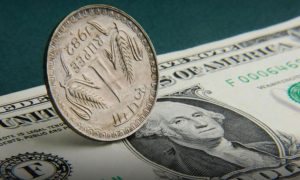I am earning Rs 90,000 per month. I am deducting Rs 40,000 in PF, Rs 5,000 in Sukanya yojana, Rs 5,000 in RD, Rs 7,500 in health insurance and Rs 6,000 in income tax. The remaining Rs 30,000 to Rs 35,000 is my monthly expenses, like school fees. Please guide me if it is a good plan for me or any other better options.
Reply by Raj Khosla, Founder and MD – MyMoneyMantra.com
Investment planning plays a pivotal role in financial stability and helps accumulate wealth over time. Since you are earning Rs 90,000 monthly and investing 60% of it in Recurring Deposits (RD), Provident Fund (PF), Sukanya Samriddhi Yojana, and health insurance, it’s essential to understand whether your investment strategy is fruitful.
Read More: Gold loan benefits: 8 reasons why it is a good option to raise money quickly
Your investments seem quite disciplined. However, the effectiveness of your financial plan will depend on your long-term financial goals, risk tolerance, and cash-flow requirements.
Your current portfolio is highly skewed towards debt instruments. This is deemed to be a safe investment choice, considering that debt instruments safeguard capital with minimal risks. They also offer guaranteed returns, which can contribute to maintaining a stable income source.
The Sukanya Samriddhi Yojana, a government-backed savings scheme for the girl child, underlines your intent to plan for your child’s future, a smart move. It offers an attractive interest rate and tax benefits under Section 80C of the Income Tax Act.
Health insurance is a much-needed safety net given the rising health-related issues and healthcare costs. Investing in health insurance ensures that you are financially prepared for contingencies.
However, this investment strategy seems overly safe and may yield low results over the long-term. Another key aspect that needs to be added to your investment portfolio is equities. Equity mutual funds can provide much higher returns and help you create wealth over the long term.
You should consider reducing PF investment and diversifying your investments into stocks, mutual funds, or real estate to potentially earn higher returns.
Read More: Is your mutual fund buying IPOs? Understanding the strategy
Ensure you have an emergency fund equivalent to at least 3-6 months of your expenses, and RD should take care of the same. Your current investments are a good foundation, and consulting a financial advisor will provide a more comprehensive financial strategy to achieve your objectives.
Remember, the more diversified your investments, the greater your chances of risk distribution and the possibility of enhanced returns.





































